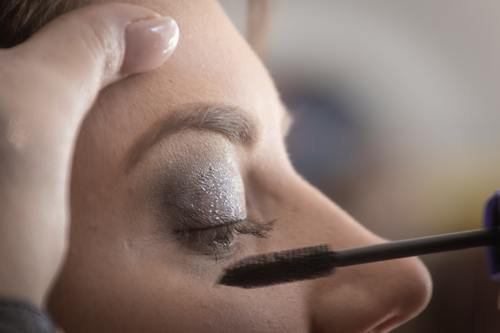Classic Christmas Party Makeup Mistakes and their Impact on Eye Health
• 44% of women have left their eye make-up on overnight
• Everyday make-up mistakes may cause serious harm to eyes
• ABDO offers advice about how to avoid any harm this festive season
Christmas is a magical time of year celebrated with parties, music and an abundance of food and drink. But what happens when you have slurped up the last of your eggnog, and headed to bed, only to forget to remove your eye make-up?
Research by the Association of British Dispensing Opticians, (ABDO), found that 44% of women have left their eye make-up on overnight at least once, whilst a worryingly high number (28%) of those surveyed use eye make-up that is out of date and more than a quarter (27%) do not clean their application brushes regularly enough.
Diane Nash BSc (Hons) FBDO CL is a Contact Lens Optician and she explains the dangers of neglecting your eye care, ‘Not removing eye make-up daily, using a specific eye make-up remover or regularly cleaning any application brushes used will increase the risk of a bacterial eye infection, which is also true for if you do not replace makeup as often as recommended on the packaging’.
It’s not just forgetting to remove make up that can cause eye infections; the application of make-up can also contribute to both minor and serious eye health issues. More than one in ten (11%) women in the UK risk damaging their eyes by applying eyeliner to the inside of their lashes. Diane explains ‘The eyelid margins are important glands that contribute oils to the tear layer and for this reason we recommend make-up should not be applied inside the lash line. Leaving this area clear will optimise the tear film and avoid recurrent dryness.
Brow and Lash treatments are growing in popularity, and if you are tempted to freshen up your eyes in the run up to Christmas, it is ‘essential to confirm the provider is appropriately qualified,’ warns Diane. Despite this, only 15% of women know how to check if the treatment provider is correctly licensed and certified to carry all services and 86% would still go for treatment even if they were not fully licenced.
Given the increased risk of eye problems at this busy time of year, the survey found that less than half of UK women (43%) would see an optician if they experienced discomfort in their eyes. Diane urges anyone with any eye care concerns to seek assistance. She adds, ‘If you have any concerns regarding eye infections including any redness and discomfort I would recommend you consult your local Optician’.
It can be hard to access healthcare over Christmas: in many areas across the UK you can now access eye care and treatment from your optician on the NHS under a Minor Eye Condition Service, and opticians are generally open at weekends too. Make your optician your first port of call for any eye problems.
ENDS
Notes to Editors:
All statistics, unless specified, are from research conducted by Vital Research and Statistics on behalf of the Association of British Dispensing Opticians and must be credited for use.
For more information, please call 020 3958 7085, or email amy@kincomms.com.
This press release was distributed by ResponseSource Press Release Wire on behalf of Kin Communications2 in the following categories: Entertainment & Arts, Health, Women's Interest & Beauty, for more information visit https://pressreleasewire.responsesource.com/about.
